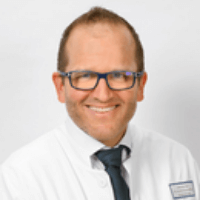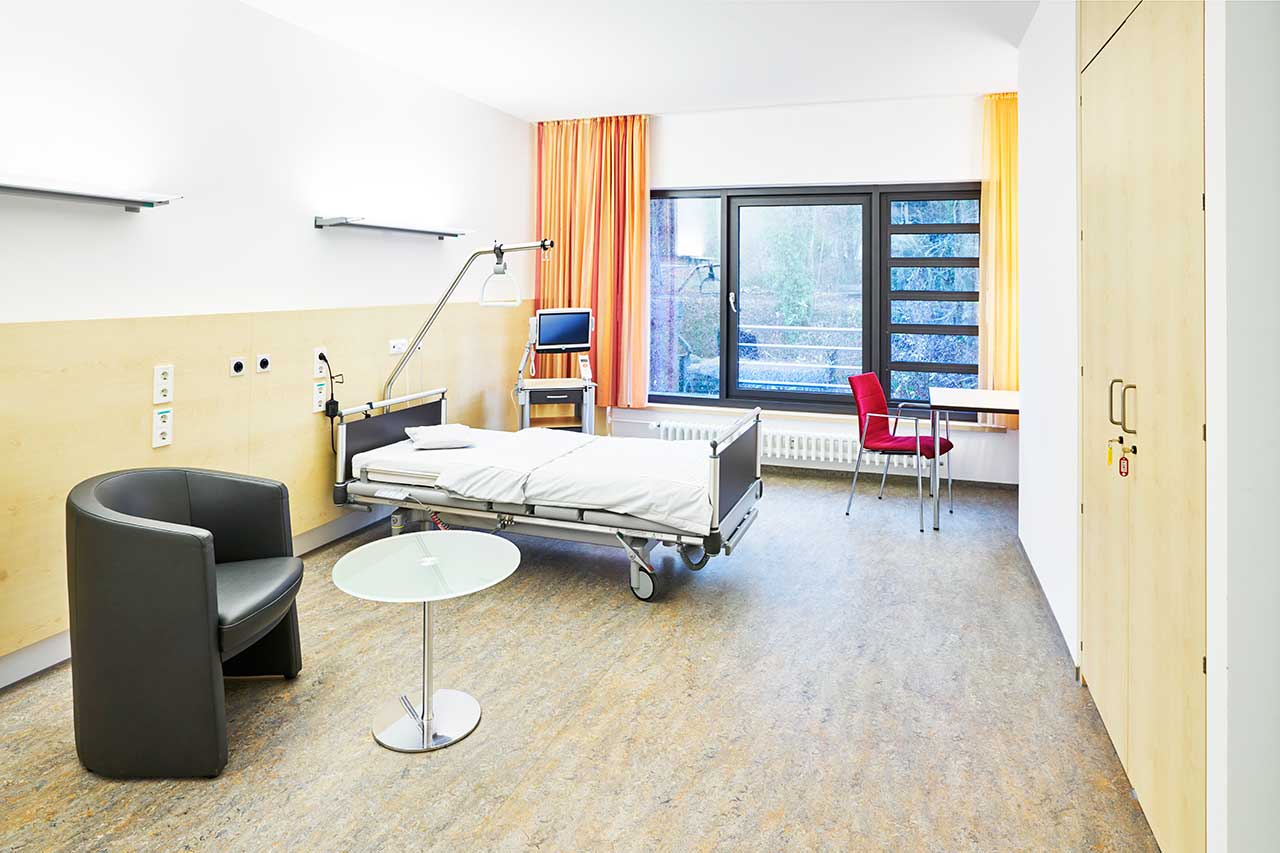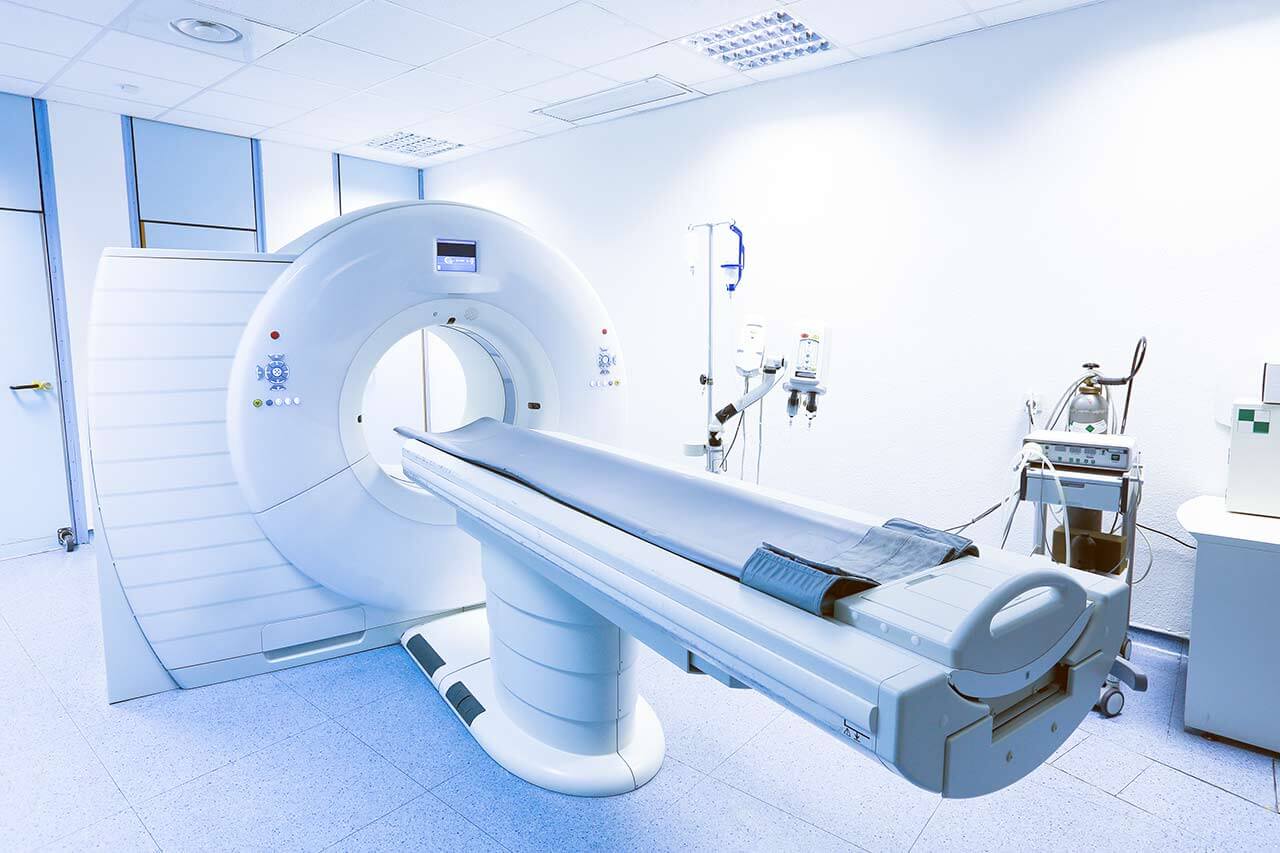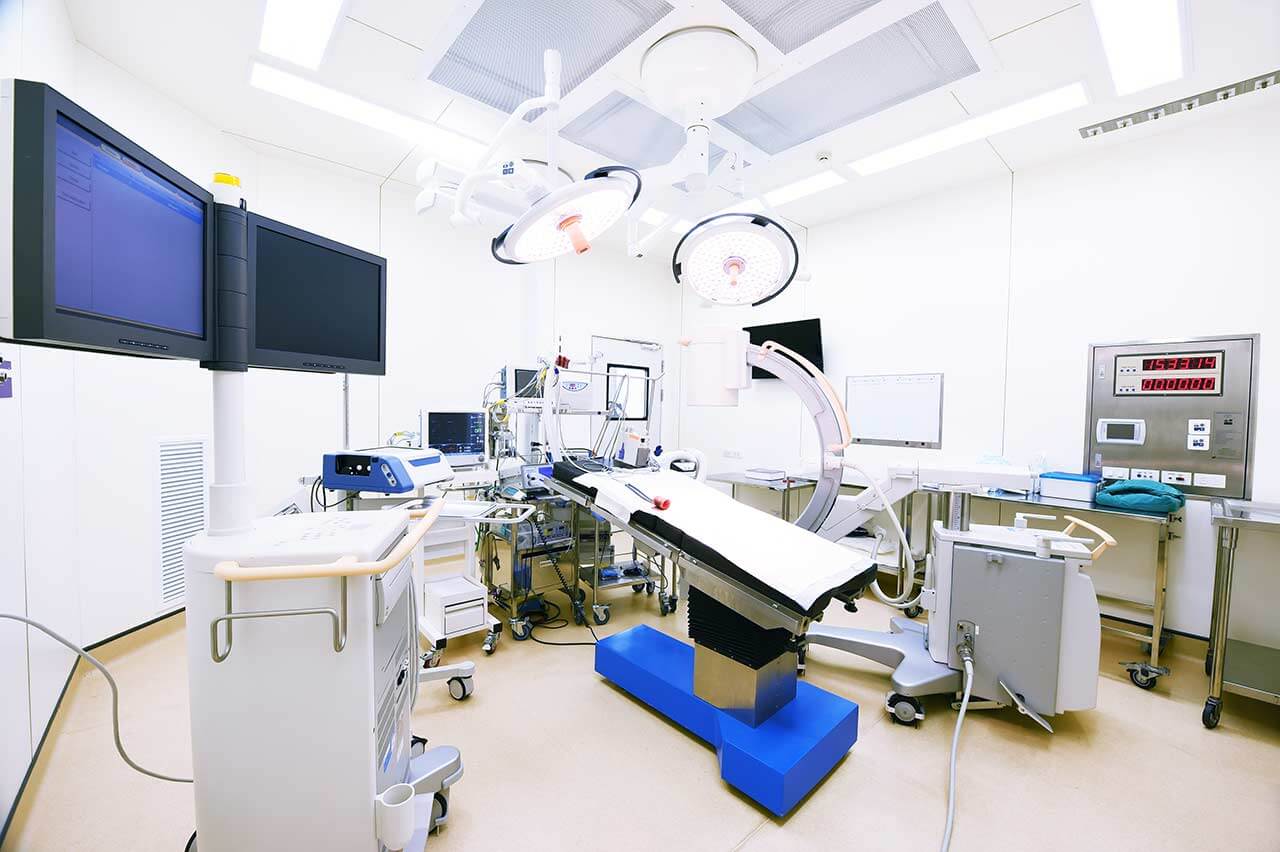
The program includes:
- Initial presentation in the clinic
- clinical history taking
- review of medical records
- physical examination
- laboratory tests:
- complete blood count
- inflammation indicators (CRP, ESR)
- indicators of blood coagulation
- blood gas analysis
- chest x-ray
- electrocardiogram (ECG)
- echocardiography (ECHO)
- high-resolution computed tomography (HRCT)
- pulmonary function test
- nursing services
- consultation of related specialists
- consultation of the chief physician and all leading experts
- development of individual treatment plan
- written statement
Required documents
- Medical records
- Chest X-ray (if available)
Service
You may also book:
 BookingHealth Price from:
BookingHealth Price from:
About the department
The Department of Pediatric Surgery at the University Hospital Erlangen offers the full range of classic and innovative surgical interventions for the treatment of various diseases in children of all age groups – from 0 to 18 years old. The department is proud of its 200 years of tradition and colossal clinical experience in the field of surgical treatment of children. The medical facility performs more than 1,000 operations every year. Many minor interventions are performed on an outpatient basis, so young patients can leave the hospital on the same day. With appropriate clinical indications, the department's pediatric surgeons use minimally invasive techniques, which exclude large soft tissue incisions and severe postoperative pain syndrome. A large number of surgical procedures are for the treatment of inguinal hernias, correction of congenital malformations of genital organs in boys (phimosis, cryptorchidism and others), interventions for Hirschsprung's disease and correction of chest wall deformities. In especially complex clinical cases, pediatric doctors from related specialties are involved in the therapeutic process. The medical facility also offers infrastructure for the leisure of young patients, so they feel as comfortable as possible and can easily tolerate hospitalization.
The Chief Physician of the department is Dr. med. Manuel Besendörfer. The pediatric surgeon has over 21 years of successful clinical experience. Dr. Besendörfer has a perfect command of the classical and modern surgical techniques, and also keeps pace with innovations in the field of surgical treatment of pathologies in children. Deep knowledge in the field of pediatric anatomy allows the specialist to achieve high diagnostic accuracy and effectiveness of surgical treatment. At the same time, he always pays attention to the emotional state of the child.
The department carries out comprehensive diagnostics, including prenatal examinations. The specialists in the field of obstetrics, neonatology and anesthesiology work together with the patient and, if any pathology is detected, develop the optimal treatment tactics. The department's diagnostic options include state-of-the-art ultrasound examinations, Doppler ultrasound scanning, CT scans and MRI, X-ray examinations, ECG, EEG, nuclear diagnostic methods, as well as invasive diagnostic procedures – endoscopy and minimally invasive surgical diagnostics (laparoscopy, thoracoscopy).
The principles of surgical treatment of children and adolescents differ not only due to their age, but also due to the applied techniques. The treatment of diseases detected during intrauterine development, the particularities of the course of pathologies in premature babies, infants and young children, school-age children and adolescents during puberty – all this requires special knowledge and special medical qualifications. The team of the department's doctors has all the necessary skills, expert knowledge and rich experience, which, combined with the use of the very latest surgical techniques, guarantees an excellent treatment result.
Thanks to the department's long-term active research activities, not only sparing surgical techniques have been developed here, but also the technologies of interventions on bones and soft tissues are being regularly improved. Such advanced medical instruments as a "harmonic scalpel" and laser systems allow the doctors to minimize trauma and perform the operation as safely as possible.
Since 1992, minimally invasive surgery has been widely used in the department. To form a surgical access, the doctor only needs to make one or several small skin incisions, through which he inserts special miniature instruments and a camera that broadcasts the image of the operating field to a large screen. Laparoscopic interventions guarantee minimal trauma to healthy tissues, but at the same time they are not inferior to classical operations in terms of therapeutic results.
The department's range of medical services includes:
- Outpatient surgery
- Inguinal hernia repair
- Circumcision
- Biopsy of small, superficial tumors and lymph nodes
- Removal of catheters
- Removal of hemangiomas
- Inpatient surgery
- Cryotherapy/cryosurgery for hemangiomas
- Minimally invasive surgery in children
- Surgical repair of thoracic deformities (pectus excavatum, pectus carinatum)
- Neonatal surgery for congenital malformations of the anterior abdominal wall and chest
- Colon surgery for congenital innervation disorders (Hirschsprung's disease)
- Surgery for sphincter and rectal diseases
- Surgery for solid tumor (benign and malignant) removal in children
- Other diagnostic and therapeutic options
Curriculum vitae
Academic and Professional Career
- Since 04.2017 Head of the Department of Pediatric Surgery at the University Hospital Erlangen.
- Since 04.2017 Permission to conduct advanced training courses in Pediatric Surgery.
- Since 05.2016 Board certification in Pediatric Surgery.
- Since 03.2014 Leading Senior Physician, Department of Pediatric Surgery, University Hospital Erlangen.
- Since 08.2011 Deputy Head of the Department of Pediatric Surgery at the University Hospital Erlangen.
- 04.2011 - 02.2014 Senior Physician in the Department of Pediatric Surgery at the University Hospital Erlangen.
- 07.2010 - 04.2011 Acting Head of the Department of Pediatric Surgery at the University Hospital Erlangen.
- 01.2010 - 06.2010 Assistant Physician, Department of Pediatric Surgery at the University Hospital Erlangen.
- 05.2009 - 12.2009 Board certification in Surgery, Department of Surgery, University Hospital Erlangen.
- 01.2004 - 05.2009 Assistant Physician, Department of Surgery, University Hospital Erlangen.
- May 2009 Board certification in Surgery.
- November 2004 PhD thesis with honors. Subject: "The use of endoprostheses with titanium coating on the transcortical model of the rabbit".
- 1999 - 2004 Study of Human Medicine at the University of Erlangen-Nuremberg.
- 1997 - 1999 Preclinical training at Ludwig Maximilian University of Munich.
Clinical Focuses
- Neonatal surgery.
- General pediatric surgery.
- Oncological pediatric surgery.
- Colorectal pediatric surgery.
- Pediatric proctology.
Research Focuses
- Colorectal pediatric surgery.
- Superficial enteral stimulation.
- Plexus nerve stimulation in children and adolescents.
Membership in Professional Societies
- German Society of Pediatric Surgery.
Photo of the doctor: (c) Universitätsklinikum Erlangen
About hospital
According to the Focus magazine, University Hospital Erlangen ranks among the best medical facilities in Germany!
The hospital is one of the leading healthcare facilities in Bavaria and offers top-class medical care distinguished by the close intertwining of clinical activities with research and training of medical students. The hospital was founded in 1815 and today is proud of its rich traditions, numerous medical achievements and an excellent reputation not only in Germany, but also in the international arena. The hospital has 25 specialized departments, 7 institutes and 41 interdisciplinary centers, whose experts work tirelessly for the benefit of their patients.
The hospital has the status of a maximum care center, and therefore it represents almost all fields of modern medicine. Oncology, transplant medicine, and robot-assisted surgery are among the top priorities of the clinical activities of the medical complex. Oncology is represented by the Comprehensive Cancer Center Erlangen, which is one of 13 centers of excellence in Germany certified by the German Cancer Society. The university hospital has a high-tech center with high success rates for heart, liver, kidney, pancreas, cornea and bone marrow transplants. In addition, the hospital is a leader in the use of robot-assisted surgery. The medical facility has at its disposal innovative robotic technologies, in particular the da Vinci Surgical System, with the help of which surgeons perform many sparing interventions in various medical fields.
The medical team of the hospital consists of highly professional therapists, surgeons and nursing staff. The focus of their efforts is on the patient, his health and peace of mind, as well as comfort during treatment. The clinical practice of doctors is based on an individual approach to each case, which results in high treatment success rates. State-of-the-art technical equipment also plays an important role in the therapeutic process. The hospital is proud of the most advanced devices for imaging diagnostics (X-ray, ultrasound, CT, MRI, PET-CT, SPECT-CT, etc.), endoscopic examinations, laboratory tests, as well as specially equipped operating rooms for robot-assisted interventions, image-guided therapeutic manipulations, minimally invasive and classical surgeries of any complexity. Thus, the doctors of the university hospital have all the necessary resources to effectively treat the most severe pathologies and save lives.
The combination of high-tech equipment, experienced and highly qualified personnel, as well as strict adherence to the standards of modern medicine, form a solid foundation for the provision of the best medical care at the European level. An undeniable proof of the high prestige of the hospital is the constantly growing number of patients who come here from various regions of Germany and other countries of the world.
Photo: (с) depositphotos
Accommodation in hospital
Patients rooms
The patients of the University Hospital Erlangen live in comfortable rooms with light colors and modern design. Each patient room has an ensuite bathroom with shower and toilet. The furnishing of the patient room includes an automatically adjustable bed with an orthopedic mattress, a bedside table, a wardrobe, a table and chairs for receiving visitors, a TV, a radio and a telephone. Wi-Fi can be provided upon request. The use of a mobile phone is prohibited in many rooms of the hospital.
Patients can also live in enhanced-comfort rooms with a more sophisticated design. The enhanced-comfort rooms additionally include upholstered furniture, a minifridge and a safe.
Meals and Menus
The hospital offers healthy and tasty food distinguished by many awards, including the 1st place in the prestigious ESSEN PRO GESUNDHEIT competition of the Bavarian State Ministry of the Environment and Consumer Protection.
The patient and the accompanying person have three meals a day. Breakfast is served buffet style: scrambled eggs, boiled eggs, sausage, cheese, bread and buns with butter and jam, cereals, etc. There are three set menus for lunch and dinner to choose from: a classic menu featuring local cuisine dishes, a Mediterranean menu and a vegetarian menu.
If for some reason you do not eat all the foods, you will be offered an individual menu. Please inform the medical staff about your dietary preferences prior to the treatment.
The hospital also houses many cafeterias, which will delight with a wide range of delicious dishes and drinks.
Further details
Standard rooms include:
Religion
The hospital regularly hosts catholic and evangelical devine services. The services of representatives of other religions are available upon request.
Accompanying person
During an inpatient program, an accompanying person can stay with you in the patient room or in a hotel of your choice.
Hotel
During an outpatient program, you can stay in a hotel of your choice. The managers will help you choose the most suitable options.




